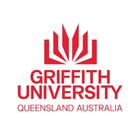Bachelor of Urban Planning (Honours)
Bachelor of Urban Planning (Honours)
In this degree, you’ll learn how to manage the social and spatial conditions of urban life, helping to create a more sustainable future. With a strong focus on practical, hands-on teaching, you’ll learn state-of-the-art drawing studios and work on real industry projects. You’ll be taught by academics who have a…
Categories
COURSE DESCRIPTION
In this degree, you’ll learn how to manage the social and spatial conditions of urban life, helping to create a more sustainable future.
With a strong focus on practical, hands-on teaching, you’ll learn state-of-the-art drawing studios and work on real industry projects. You’ll be taught by academics who have a strong footing in the industry and have the opportunity to network and connect with industry professionals throughout your degree.
What’s more, you’ll get the chance to undertake an industry placement, allowing you to put your skills into practice and make valuable industry contacts before you graduate.
In your final year you will complete an independent research project under the supervision of an academic staff member. The Honours program is a critical element for students seeking a direct pathway into research, academia and employment in many consulting and government organisations who prioritise the employment of honours graduates.
ATTENDANCE INFORMATION
The Bachelor of Urban Planning (Honours) is offered full-time on-campus at the Nathan and Gold Coast campuses.
If you are an International student on a student visa, you must ensure that you enrol in a way that will allow you to complete your enrolment within the expected program duration as stated on your Confirmation of Enrolment (CoE).
Graduate outcomes
As a graduate, you can follow several different career paths, including urban planner, land development designer, regional planner, environmental planner or traffic and transport planner, to name just a few.
You could find employment opportunities with all levels of government, especially state and local government agencies as well as business and industry groups, community organisations and private consulting firms.
You may find work in development companies implementing proposals for new housing estates, tourism complexes, transport networks, shopping centres and other commercial projects.
Key employment sectors
Councils
Government
Land development
Construction industry
Potential job outcomes:
Urban/town planner
Strategic planner
Regional planner
Environmental planner
Land development designer
Traffic and transport planner
Social planner
REQUIREMENTS
Standard academic entry to our undergraduate degrees requires completion of secondary school comparable to Australian Year 12 or equivalent academic achievement.
English language requirements apply to International applicants and other applicants whose previous study was undertaken in a language other than English. The minimum English language requirements for such applicants for entry to this program are as follows:
- A minimum overall band score of 6.5 on IELTS (Academic) with no sub-score of less than 6.0
- OR a minimum score of 575 on TOEFL
- OR an internet-based (iBT) TOEFL score of 79 (no sub-score less than 19)
- OR no score less than 3+ in each skill of the ISLPR (conducted by ISLPR Language Services only)
- OR a minimum overall score of 176 (no score less than 169) on C1 Advanced (formerly Cambridge Certificate in Advanced English) or C2 Proficiency (formerly Cambridge Certificate of Proficiency in English)
- OR an overall score of 58 in the Pearson Test of English (Academic) with no score less than 50.
EDUCATIONAL INSTITUTION
Griffith University is ranked in the top 2% of universities worldwide and strives to create a brighter future for all by prioritising innovation and social impact. We are committed to providing international students with quality education, guidance, and support. With Australia’s most awarded teachers, Griffith University offers a full suite of undergraduate, postgraduate and research degrees in areas including architecture, construction, and planning; business and government; criminology and law; education; engineering, IT and aviation; humanities, languages and social science; medicine, dentistry and health; music and performing arts; science and environment; visual and creative arts.

